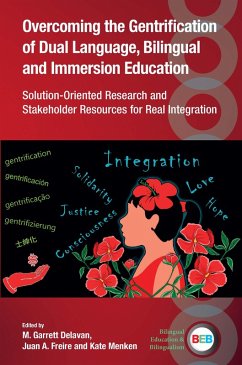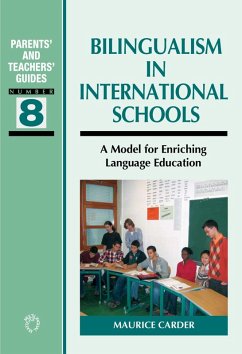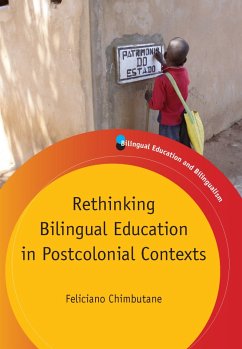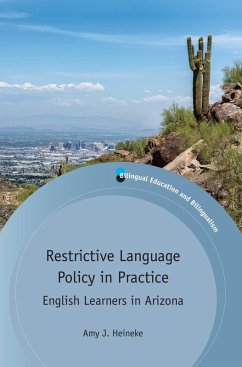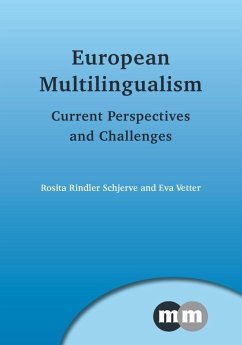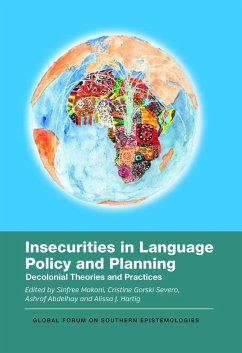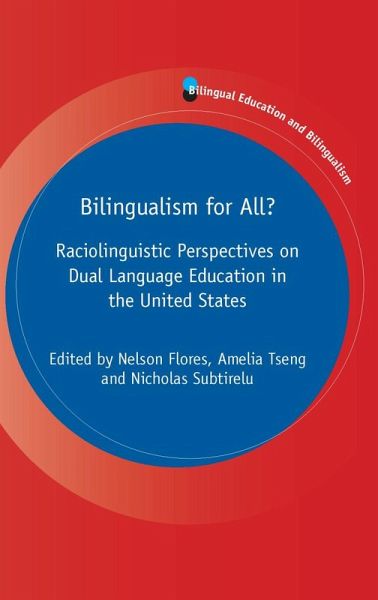
Bilingualism for All? (eBook, ePUB)
Raciolinguistic Perspectives on Dual Language Education in the United States
Redaktion: Flores, Nelson; Subtirelu, Nicholas; Tseng, Amelia
Versandkostenfrei!
Sofort per Download lieferbar
18,95 €
inkl. MwSt.
Weitere Ausgaben:

PAYBACK Punkte
9 °P sammeln!
It is common for scholarly and mainstream discourses on dual language education in the US to frame these programs as inherently socially transformative and to see their proliferation in recent years as a natural means of developing more anti-racist spaces in public schools. In contrast, this book adopts a raciolinguistic perspective that points to the contradictory role that these programs play in both reproducing and challenging racial hierarchies. The book includes 11 chapters that adopt a range of methodological techniques (qualitative, quantitative and textual), disciplinary perspectives (...
It is common for scholarly and mainstream discourses on dual language education in the US to frame these programs as inherently socially transformative and to see their proliferation in recent years as a natural means of developing more anti-racist spaces in public schools. In contrast, this book adopts a raciolinguistic perspective that points to the contradictory role that these programs play in both reproducing and challenging racial hierarchies. The book includes 11 chapters that adopt a range of methodological techniques (qualitative, quantitative and textual), disciplinary perspectives (linguistics, sociology and anthropology) and language foci (Spanish, Hebrew and Korean) to examine the ways that dual language education programs in the US often reinforce the racial inequities that they purport to challenge.
Dieser Download kann aus rechtlichen Gründen nur mit Rechnungsadresse in A, D ausgeliefert werden.




